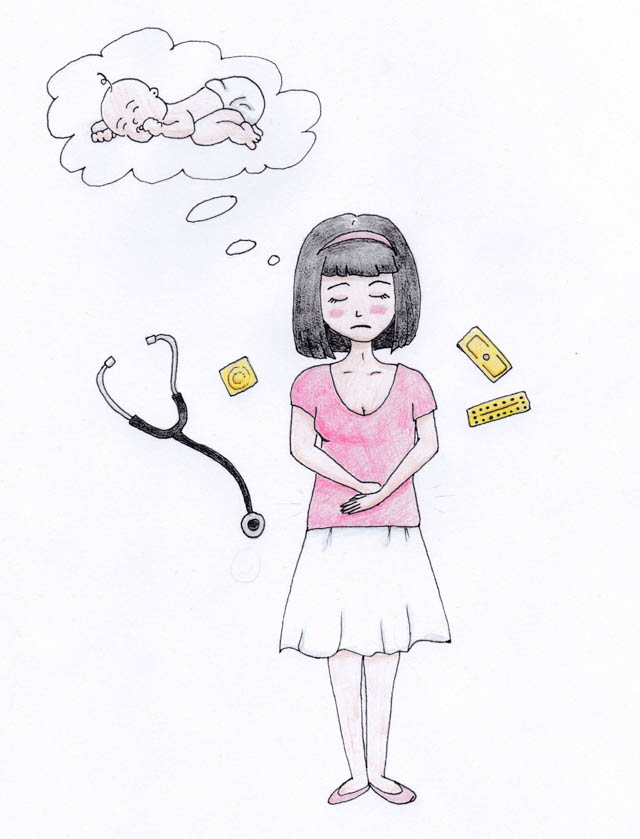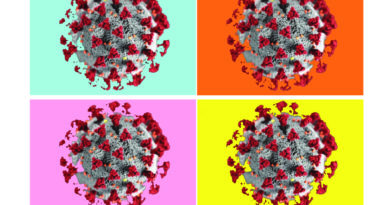Three Health Problems You Don’t Want to Ask Your Friends About
When we need information about health concerns, we all have trusted sources we turn to. Some people ask their doctor, others ask friends and family, and many simply Google the information they are looking for.
If you are an expat in Switzerland, you are probably already familiar with a number of services in your area – your local hospital, the local Mütter- und Väterberatung, the late-opening pharmacy nearby, and perhaps you’ve even printed off and completed a personal Emergency Numbers List.
But what if your health worry is one of these?
- Getting access to emergency contraception
- Looking for advice about an abortion
- Needing a sexual health check-up
In these cases, you may prefer not to confide in a friend or even your own doctor. You might not know what is available locally, whom to ask, or where to go for information. It can feel very isolating looking for help in a country where you are an expat.
Sometimes you just want the practical details: Is it available here? Where do I go? What will it cost?
Emergency Contraception
Situation: You are worried because you had unprotected sex or a condom split.
The emergency contraception pill (also known as the “morning-after pill”) is readily and easily available in Switzerland. You can get it on prescription from your usual doctor, but you can also get it from a pharmacy without seeing your doctor, or at Sexual Health Clinics. Hospital emergency departments can also supply you with emergency contraception (e.g., at weekends).
Pharmacies will sell you one of the common named brands available here including NorLevo and ellaOne. The pharmacist will take you through a series of questions before issuing the medication to you. There is no fixed price for the emergency contraception pill. The cost can vary a lot depending on where you get it from. It tends to be cheaper if you get it from a Sexual Health Clinic (can be around CHF 15) and more expensive if you buy it directly at the pharmacy (e.g., can cost CHF 60 or more as the consultation cost of speaking to the pharmacist is added in, too). Hospitals and late-night pharmacies also tend to charge more. The cost is not covered by health insurance.
In German: Die Pille danach or Notfallkontrazeption or Die Notfallverhütung.
In French: pilule du lendemain, or pilule d’urgence, or la contraception d’urgence
Some brands of emergency contraception pill need to be taken within 72 hours (three days), and other brands must be taken within 120 hours (5 days). An IUD (a coil) can also be fitted inside your womb to act as emergency contraception (called Die Spirale danach in German; le dispositif intra-utérin (DIU) in French). This can be done by your own gynaecologist, or a local Sexual Health Clinic can do this, or they will supply you with the address of a local gynaecologist who can fit it for you.
The brilliant Swiss website www.sex-i.ch provides clear and useful information in English on the different methods of emergency contraception available in Switzerland (as well as leaflets in other languages such as Spanish and Portuguese).
Abortion/ Termination of Pregnancy
Situation: You are a woman who is an expat living in Switzerland. You know that views and opinions on abortion vary widely across countries. You don’t want to speak to your friends about your pregnancy, and you are not sure what to do.
Abortion is allowed in Switzerland, and the cost is paid for under basic health insurance. However, you can also have an abortion outside of the normal health insurance arrangements and pay the cost yourself. Abortions are mainly done at private clinics and at some hospitals. Not all gynaecologists provide abortion services.
Although the Swiss website Schwangerschaftsabbruch has lots of information on termination of pregnancy in German, some of the content is very usefully available in English. Addresses are given by area (e.g., Zurich) of all doctors and clinics (private or otherwise), so you can search for someone nearby to advise you. The website also provides a clear PDF document in English detailing approximate costs of a termination if you are paying yourself.
Sexual Health Check-Up
Situation: You are scared that you have been infected with a sexually transmitted infection or worried that you could be at risk of being infected. You want to have a check-up and prompt treatment if you need it. You don’t want to see your usual gynaecologist.
You could go along to one of the AIDS-Hilfe Schweiz (Swiss AIDS Federation) testing and counselling centres listed here by canton and in English.
Or find your nearest Sexual Health Clinic using the Sexuelle Gesundheit/Santé Sexuelle website (not in English, but you can put your area name (e.g., Lausanne) into the box labelled Beratung or Conseil, and a list of local addresses will come up. Another Swiss website that also lists clinics you can go to is the Love Life website.
In general, you will be asked to pay upfront, in cash, for an HIV test or a test for syphilis. An HIV test costs around CHF 50 and a syphilis test around CHF 30. The cost of testing for other sexually transmitted infections (e.g., chlamydia, gonorrhoea, etc.) is reimbursed by your health insurance.
Other Health Problems
Are there any other common health situations you have experienced while living in Switzerland when you haven’t wanted to talk to your usual doctor or to your friends? Where did you go for help? Let us know if we can add other useful pointers.
By Dr. Jahura Hossain
Born and brought up in London, Jahura is a U.K.-qualified doctor. She has worked in hospitals, general practice, public health, prison medicine, and the pharmaceutical industry.
Illustration by Lara Friedrich
Lara has been a freelance illustrator for Mothering Matters since early 2013. She is in her third year of University (majoring in Psychology) where she’s currently working as an assistant in a research project in pedagogy. Lara is also an assistant translator from German to English for various fiction books, and also works as a demo singer for the songwriter Kate Northrop.
© Copyright. Jahura Hossain. 2016. All rights reserved. No part of this article may be reproduced without the express consent of the author.




